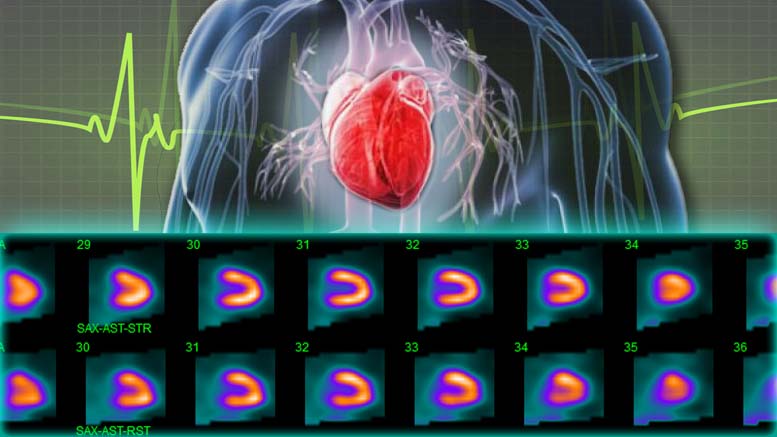What Is It?
- A next generation non-invasive method of determining if you have significant coronary artery disease (i.e. atherosclerotic plaque in your heart). The exam is similar to a standard Nuclear Stress Test, however using a PET camera instead of a standard nuclear medicine camera. We are the only outpatient center in NJ to offer this exam.
- The PET Camera will take pictures of your heart after you get an injection of medicine (radiotracer) that will specifically go to your heart and allows us to see how well your heart is functioning. We will take images of your heart at rest and after a stress test which will be done with a special medication that will make your body think it is exercising. The PET camera also has a CT camera which will allow us to get an optional calcium score of your heart. The PET camera will also be able to determine coronary flow reserve which allows us to more accurately determine if you have significant coronary artery disease.
- Benefits PET Myocardial Perfusion Imaging as compared to standard SPECT Nuclear Stress Test
- Superior image resolution inherent to PET imaging over SPECT
- Faster image acquisition (average exam takes 45 minutes vs 4 hours for SPECT)
- Dramatically reduced patient radiation dose (up to 9 times less dose)
- Quantitative evaluation with coronary flow reserve, which can increase sensitivity for identification of ischemia
- Identification of balanced ischemia, a common pitfall of a standard Nuclear Stress Test
- Ability to perform a concurrent coronary calcium score
How Do I Prepare?
- MEDICATIONS:
- Do not take proton pump inhibitors for 36 hours (i.e. acid reflux medications such as Nexium, Prilosec, Protonix).
- Take all other medication as your normally would unless told otherwise.
- Do not take proton pump inhibitors for 36 hours (i.e. acid reflux medications such as Nexium, Prilosec, Protonix).
- FOOD/DRINK:
- Do not eat or drink anything caffeinated or decaffeinated for at least 24 hours before the procedure. This includes products containing chocolate. Caffeine can interfere with the ability to perform the stress test.
- Do not eat or drink anything for 6 hours prior to your exam. A small snack of fruit, toast with jelly, crackers and water is acceptable for the morning of your exam.
- Do not eat or drink anything caffeinated or decaffeinated for at least 24 hours before the procedure. This includes products containing chocolate. Caffeine can interfere with the ability to perform the stress test.
How Is It Done?
- Our nurse will place an intravenous (IV) line in your arm
- Our technologist will place you on the PET table
- Our nurse will inject medicine (radiotracer) into your arm and we will take multiple pictures
- We will inject a medication to make your body think it is exercising by causing the blood vessels in your heart to open up more and take make pictures
- TOTAL EXAM DURATION: 45 minutes
What Happens Next?
- Results from your exam will be available to you within a few business days and oftentimes on the same day.
- Calcium Scores (if done) can range from zero to over a 1,000.
- The exam will show if you have any reduced blood flow to your heart (i.e. ischemia).
- Your healthcare provider will contact you if they need to make any changes to your medications or if you need further testing. Types of additional testing may include a Coronary CT Angiogram or Cardiac Catherization.



